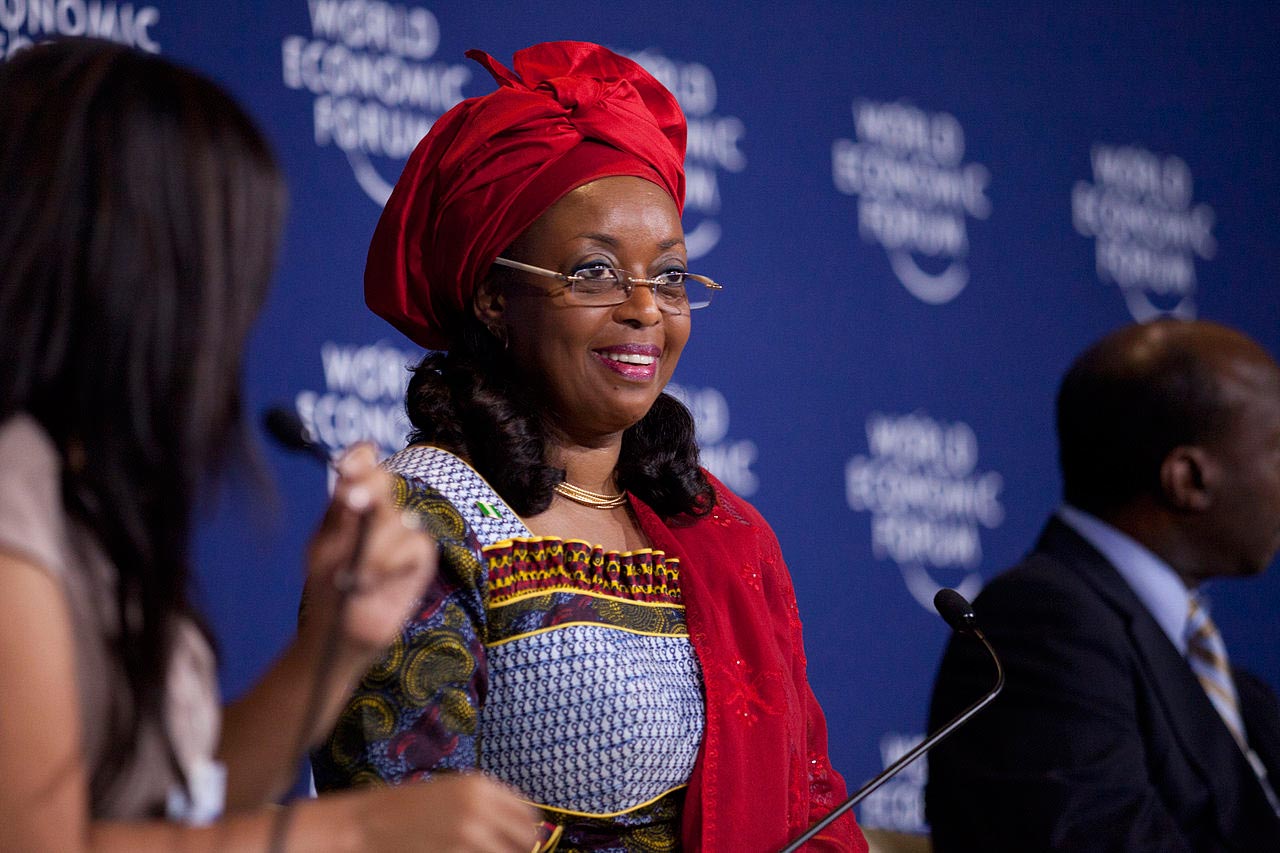Determined to have a first hand understanding of the cause of the prolonged fuel scarcity across the country, the Minister of Petroleum Resources, Mrs. Diezani Alison-Madueke, paid a surprise visit to several filling stations in Lagos Sunday, March 9, 2014 and concluded that the marketers were behind the scarcity of the product.
Speaking during the inspection of some filling stations in Lagos State, the minister said the country had enough PMS to meet the domestic demand.
“We have enough fuel to wet the country, but the challenge we are having is that, after loading, some truck drivers will not supply the lifted products at the designated filling stations. Having gone round the state (Lagos), it is not just the filling stations at Ikoyi that appeared to be wet with product, but other extreme locations like Ajah and other parts in Surulere,” she said.
This came on a day that the Nigerian National Petroleum Corporation (NNPC) and the International Oil Companies (IOCs) are engaged in rounds of accusation and counter accusation over the commencement of new projects by the IOCs.
Speaking on the scarcity of petrol, Alison-Madueke said there were many factors militating against efficient delivery of the products to the end users.
“We learnt that some of the marketers instructed their drivers to change the number plates of their trucks to make it difficult for tracking. Does it mean those markets they are diverting the product to are more lucrative than intended market? I have directed the heads of the agencies, Departemnt of Petroleum Resources (DPR), Pipeline Product Marketing Company (PPMC) and Petroleum Products Pricing Regulatory Agency (PPPRA), to get back to me today and give me a clear picture and timeline in terms of numbers of trucks coming in to Lagos, the volumes and where they are getting to in terms of the market,” she said.
“If we can establish there is (diversion of products), I want to know when and how this is being done. They need to supply me how these trucks are being tracked because diversion is not easy to do. They will be sanctioned and I am ready to publish names of anybody that may be involved,” she added.
The minister however assured Nigerians that there were enough products in strategic reserves that would last for over two weeks if importation of fuel were to be suspended.
The private marketers had blamed the scarcity on the delay of their fourth quarter 2014 import allocation by the PPPRA.
Meanwhile, the NNPC and some of the IOCs seem headed for a collision over the alleged failure of the NNPC Board to sit for the past 15 months to approve new oil and gas projects, coupled with the long contracting cycle of projects, THISDAY has learnt.
This impending clash between the two bodies, it was learnt, had prompted some of the major IOCs to place embargo on new employment as they insisted that no jobs would be created without new projects coming on stream.
Some of the projects that have suffered undue delay due to budget issues include Bonga South West, Bonga North (Aparo) and Bonga North West, initiated by Shell Nigeria Exploration and Production Company (SNEPCo), under a Production Sharing Contract (PSC) arrangement with the NNPC.
Other projects include Eni’s Zabazaba and Etan Fields, under the company’s Agbara and Abo projects; Chevron’s 100,000 barrels per day Nsiko deepwater project; and Exxonmobil’s Bosi and Uge projects.
Officials of some IOCs told THISDAY that there were other new projects that successfully passed through the National Petroleum Investment and Management Services (NAPIMS), an investment arm of the NNPC, but had not been approved by the NNPC board.
THISDAY gathered that the frosty relationship between the NNPC and the IOCs over new projects had deteriorated to the extent that a top official of the corporation last week walked out on the deputy managing director of one of the major IOCs, who led a team of officials of his company to the NNPC to discuss the IOC’s budget from his office over disagreement on budget.
But the NNPC officials, who spoke to THISDAY on condition of anonymity, defended his action, saying the affected deputy managing director and his team presented a budget that was more expensive than the price of crude oil.
“They presented a budget based on $118 per barrel, when the price of crude oil is between $105 and $110 at the international market. How can the cost of producing crude oil be higher than the price of oil at the international market and you expect me to discuss with them. I did not have any issue to discuss with them,” he said.
However, some officials of the IOCs also told THISDAY that all the new projects they initiated had been put on hold because the NNPC board that ought to approve the projects had not sat since January 2013.







